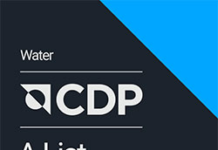On the morning of 9 May 2022, while The Hindu, The Hindu Business Line and The Indian Express are talking about a government ‘order’ on online news media compensation by the tech giants, there is thus far no evidence that the act tabled in the first week of April in Ottawa has yet been passed. While the federal government tabled the bill in parliament on 5 April 2022, the Act when passed is expected to add to Canadian newspaper revenues by as much Canadian$ 150 million.
Bill C-18 known as the Online News Act would create a framework for news outlets to collectively negotiate deals with tech companies to share online advertising revenues when the parties cannot reach a privately negotiated agreement. It would basically compell the tech giants to compensate Canadian new media for content that appears on their global platforms. Canada’s heritage minister Pablo Rodriguez, who table the bill in parliament said during a press on Parliament Hill, “The news sector in Canada is in crisis and this contributes to the heightened public mistrust and the rise of harmful disinformation in our society… “We want to make sure that news outlets and journalists receive fair compensation for their work.”
Canadian news organizations and industry lobby groups such as News Media Canada urged the federal government to follow Australia’s example and introduce industrywide measures that force tech companies to pay for content. While Google and Facebook have been compelled to reach agreements with the news media in Australia and France, the format or terms of the agreement imposed by the Australian agreement is seen as the best deal so far for news media by industry experts.
The proposed Canadian legislation would allow news outlet collectives to strike deals with the tech giants. If an agreement can’t be reached, the news outlets would go to the Canadian Radio-television and Telecommunications Commission for mediation. In cases where the mediation fails, the CRTC would initiate arbitration through a three-member panel, which would issue a binding contract between the news outlet (or outlets) and the digital platform. The CRTC would also have the power to impose penalties of up to Canadian$ 15-million each day on the platforms that don’t comply with the rules.
Indian news media appeals to CCI for fair deal from tech giants
As we have been reporting over the past several years, the Indian newspapers have through the Indian Newspaper Society (INS) and the more recently formed Digital News Publishers Association (DNPA) gone to the Competition Commission of India to request redressal against the market imbalance imposed on them by the tech media enjoying 80 to 90% of the advertising revenue generated by online news.
As we wrote in end-April, the INS had asked Google to compensate them for carrying their content online by sharing 85% of its ad revenues in mid-February. “Google is taking a ‘giant share of advertising spends’ leaving publishers with a small share and that the publishers are facing a very opaque advertising system as they are unable to get the details of the Google advertising value chain,” it said.
The Competition Commission of India initiated an investigation into complaints against Google for abuse of its dominant position in the online news media market based on a plaint filed by the INS. The INS says that while the news content is generated by the publishers, Google gets to keep an arbitrary and disproportionately large share of the advertising revenue since it controls and dominates the entire digital ecosystem including both buying and selling advertisements. It has also questioned the opacity and obliqueness of the Google ad revenue system.
In mid-April 2022, the Telecom Regulatory Authority of India (TRAI) also got into the act and hinted at the possibility of regulatory intervention to enable Indian news media to get a fair revenue share from tech giants such as Google and Facebook. In a consultation paper issued recently, the TRAI said that policy interventions in other countries have played a substantial role in addressing news media concerns and negotiations.
It is not clear whether the seemingly voluntary intervention of the TRAI will help or confuse the process of compelling the tech giants to negotiate fairly and squarely with Indian news media outlets. At the same time it is not clear why the three Indian news media outlets cited above are this morning saying that the Canadian government has passed the Online News Act. Nor is it clear why they are projecting the notion that it is only the digital News Publishers Association (and not also the venerable INS), which they say is representing the “top Indian newspapers and their digital editions” to the CCI for fair compensation from the tech giants.


















